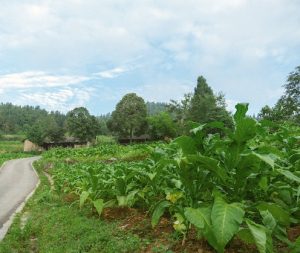Acting on the recent Budget announcement, the Indian government released 109 high-yielding, climate-resilient, and biofortified varieties of crops.
The new crop varieties developed at the India Agricultural Research Institute are expected to bring multiple benefits. It will increase farmers’ yield, tackle the problem of malnutrition, and also have a positive impact on the environment.

In addition to climate-resilient crops, the government also wants to push natural farming and promote sustainable agriculture practices among Indian farmers.
Agriculture in India is highly vulnerable to extreme weather events such as droughts, heat waves, and flooding. Climate change is expected to reduce yields of staple crops by up to 30% due to lower productivity and crop failure.
The impacts of climate change on agriculture have far-reaching implications on agricultural productivity and farmers’ efficiency, especially those that are highly dependent on monsoon rainfall.
To respond to this vulnerability, climate-resilient crops have been recommended for farmers as one of the approaches.
India grows a variety of agricultural products and is among the top producers and exporters of rice, wheat, pulses, fruits, cotton, sugarcane, tea, spices, etc., in the world. So Indian food production is consumed domestically and globally as well.
The 109 varieties released by the government include 34 field crops and 27 horticultural crops.
In the field crops, seeds of various cereals including millets, forage crops, oilseeds, pulses, sugarcane, cotton, fiber, and other potential crops were released. Among the horticultural crops, different varieties of fruits, vegetable crops, plantation crops, tuber crops, spices, flowers, and medicinal crops were released.
One of the climate-resilient seeds released is Bajra (Pearl millet), a staple food crop in India, especially in the arid and semi-arid regions, which is highly valued for its drought resistance and adaptability to marginal soils. The high-yielding seed released by the government will reduce the crop production time by 30-40 days.
Another rice seed variety is expected to reduce the water requirements for growing the crop, which is extremely crucial considering the need to save water.
Adoption of climate-resilient crops, such as early-maturing cereal crop varieties, heat-tolerant varieties, drought-tolerant crops, or rice with submergence tolerance, can help small-scale Indian farmers better cope with climate shocks.
For India, it is important to drive as many actions on climate change as possible.
The country has pledged to reach net-zero emissions by 2070 and to achieve this sustainable agriculture is extremely significant.
You might also like to read about a few other initiatives India has taken to make agriculture climate-resilient.






Add comment